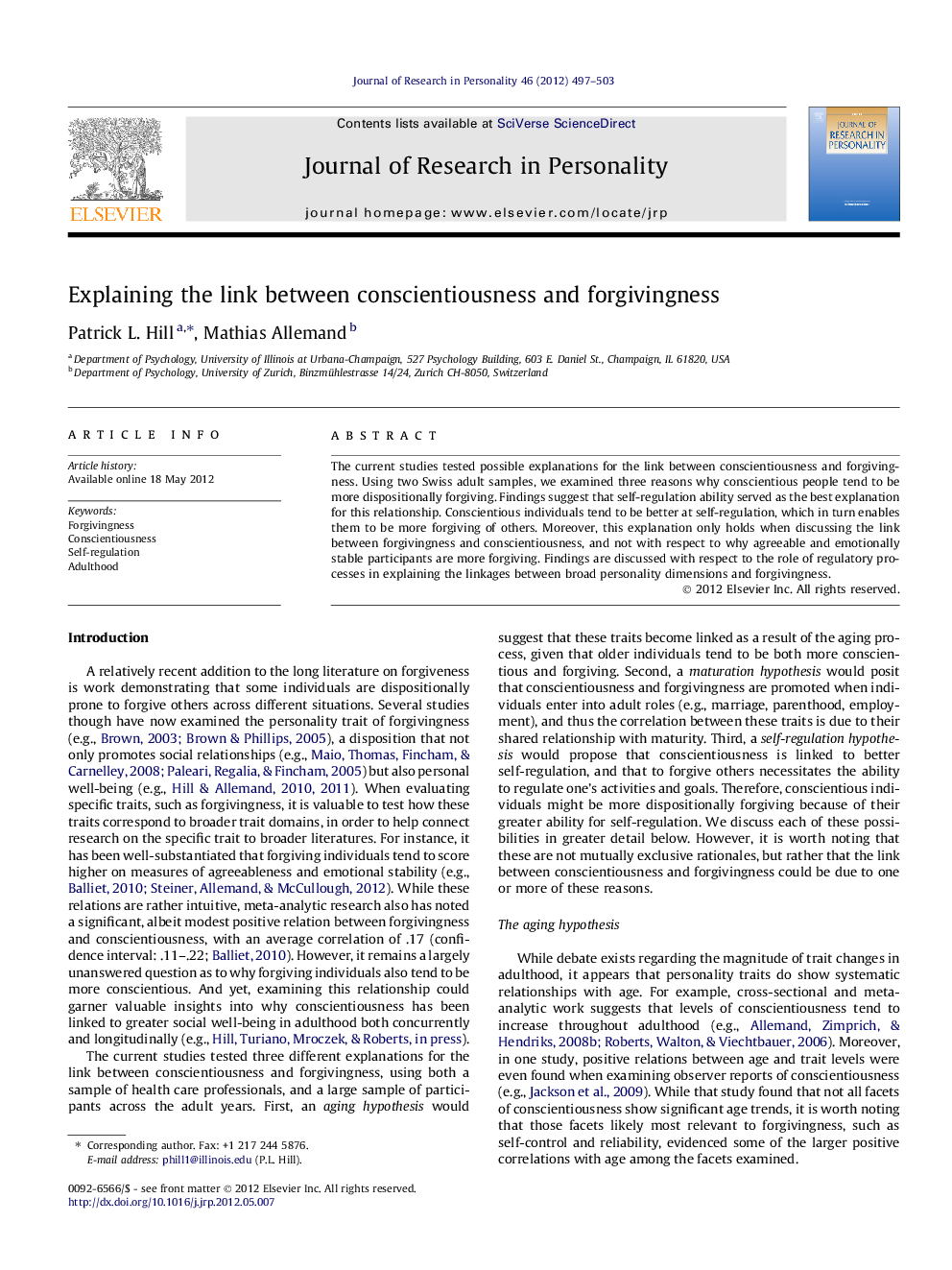| Article ID | Journal | Published Year | Pages | File Type |
|---|---|---|---|---|
| 951346 | Journal of Research in Personality | 2012 | 7 Pages |
The current studies tested possible explanations for the link between conscientiousness and forgivingness. Using two Swiss adult samples, we examined three reasons why conscientious people tend to be more dispositionally forgiving. Findings suggest that self-regulation ability served as the best explanation for this relationship. Conscientious individuals tend to be better at self-regulation, which in turn enables them to be more forgiving of others. Moreover, this explanation only holds when discussing the link between forgivingness and conscientiousness, and not with respect to why agreeable and emotionally stable participants are more forgiving. Findings are discussed with respect to the role of regulatory processes in explaining the linkages between broad personality dimensions and forgivingness.
► We examined why conscientious people tend to be more forgiving. ► Self-regulation mediated the link between conscientiousness and forgivingness. ► We found that married participants and parents reported higher forgivingness. ► This study supports the importance of self-regulation for adaptive aging.
